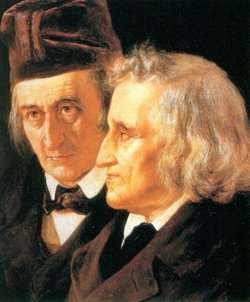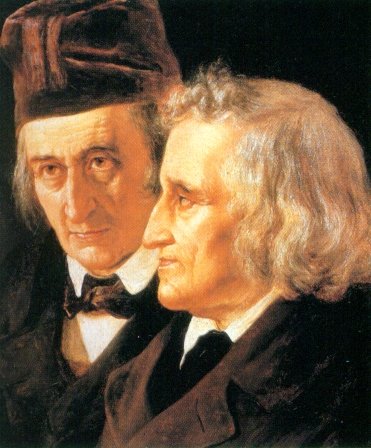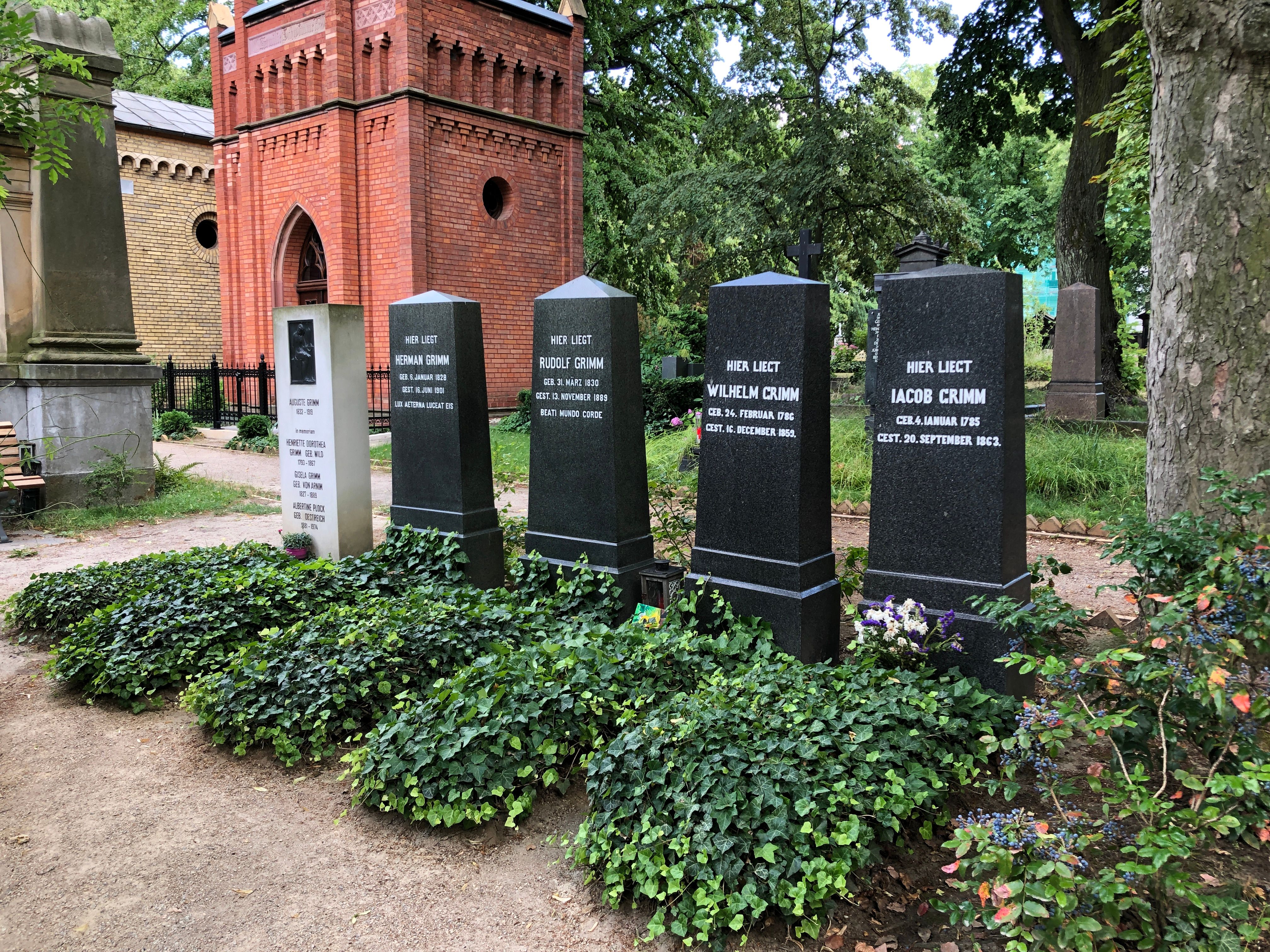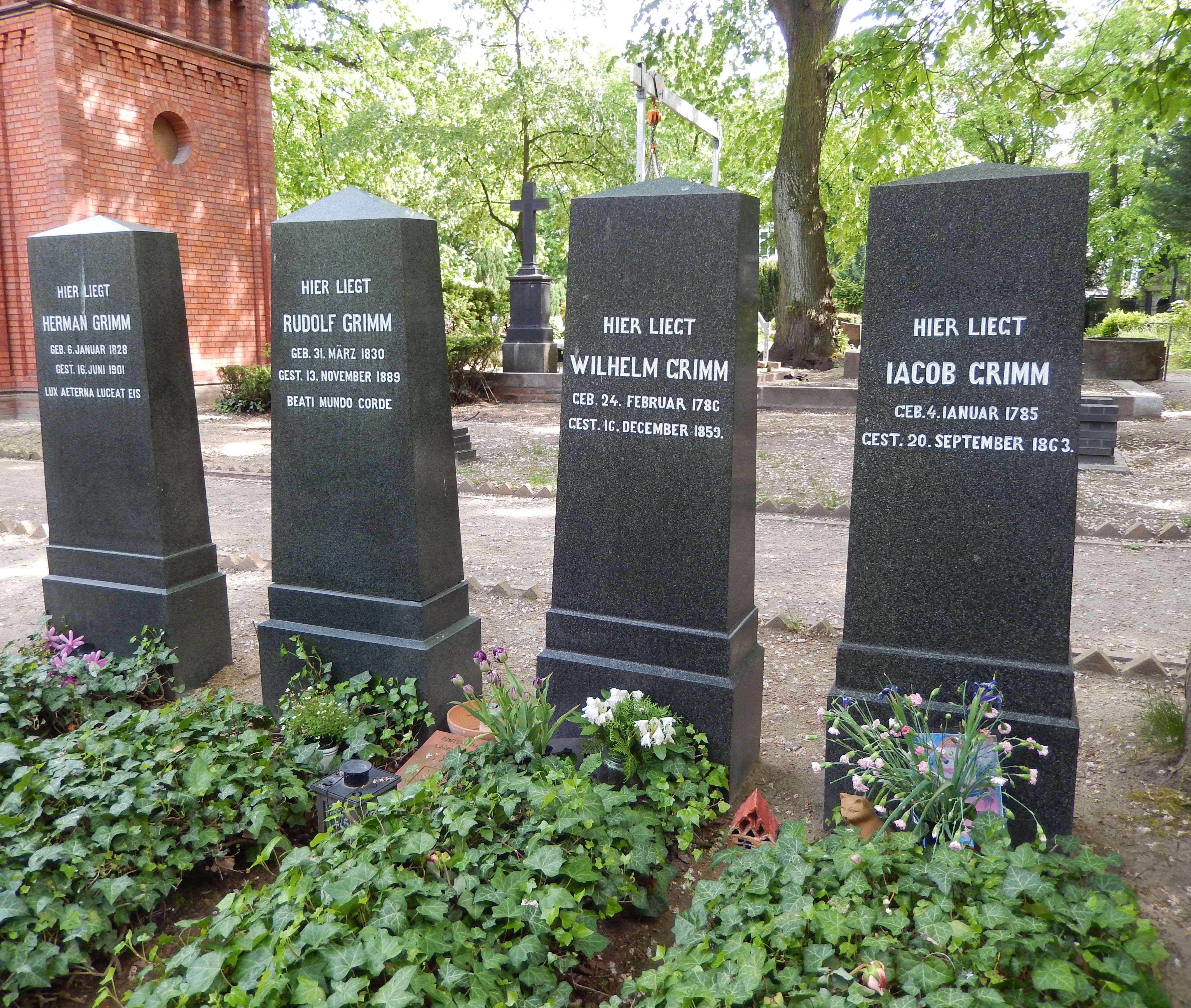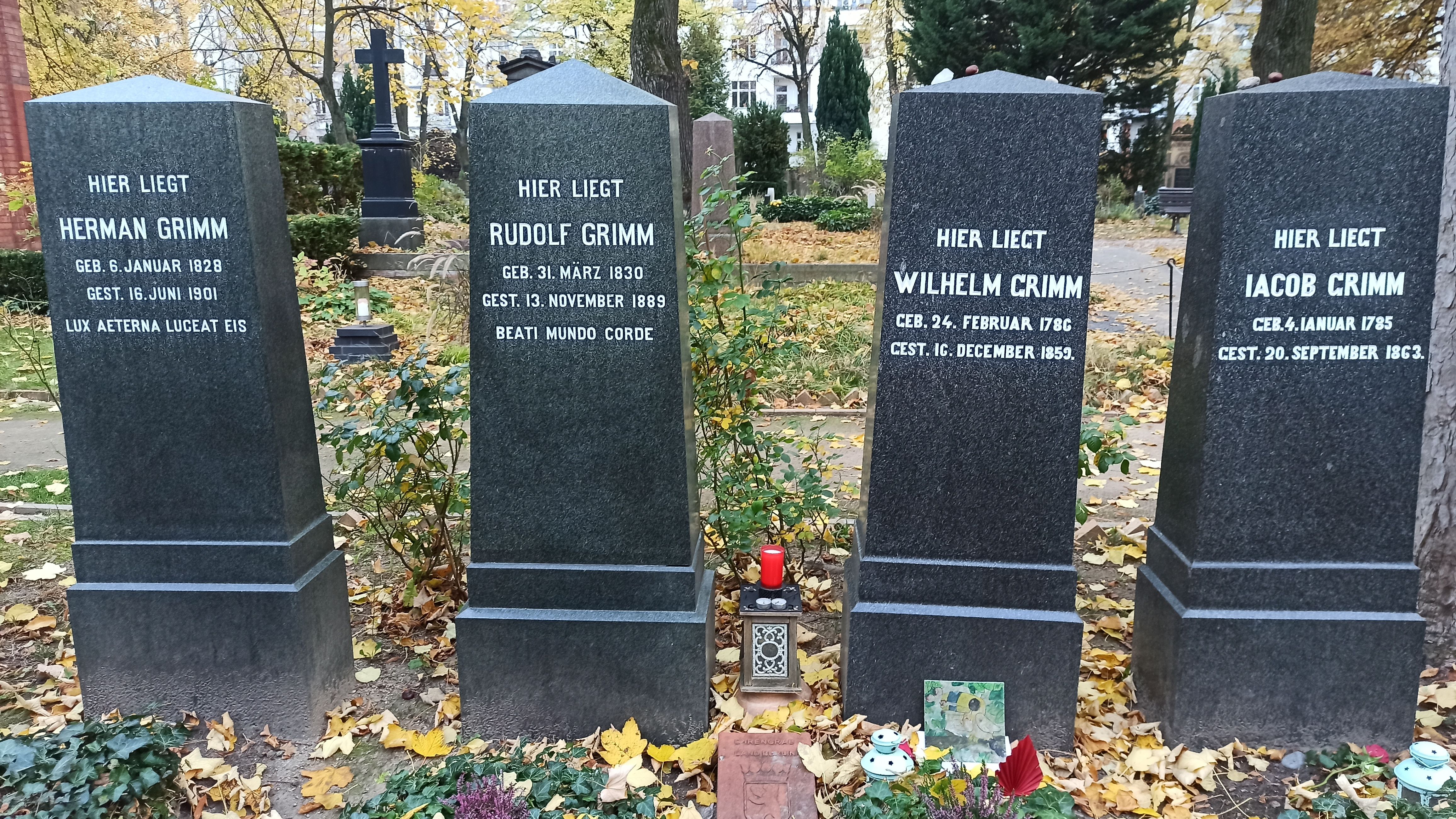Author. He was the younger of the Grimm brothers, who received recognition in the 19th century for their German fairy tales. These fairy tales remain current into the 21st century, and many have been adapted to film as well as animations. After their father died when the brothers, Jacob and Wilhelm Carl, were young, their widowed mother was left as the primary caregiver of six children. With the financial help of their aunt, the brothers were sent to school in Kasel to attend the Lyzeum. Following their father's footsteps, the brothers studied law at the University of Marburg but, in time, abandoned law for a literary career. The brothers had a very close relationship, living together in the same house their entire lives. Unlike his brother, he enjoyed music and collected old folk songs. Compared to his brother, he had poor health in general. In 1814, he became a secretary at the Elector's Library in Kassel, and later his brother joined him. Between 1821 and 1822, the brothers raised extra money by collecting three volumes of folktales. With the publication of the folktales, they wanted to promote the idea that Germans shared a similar culture and advocate the unification process of the small independent kingdoms and principalities into one strong nation. After collecting three volumes of folk tales from peasants, the brothers documented the oral narrations, creating their famous fairy tales. Among the best-known stories are "Little Red Riding Hood," "Hansel and Gretel," "Cinderella," "Rumpelstiltskin," "Snow White and the Seven Dwarfs," and "The Golden Goose." He was credited for penning his fairy tales with realistic folklore characters, which made a "scientific model" to be used by generations of other writers. Their first collection of fairy tales was published in 1824 as "Grimm's Fairy Tales." In 1825, he married a druggist daughter, Dorothea Viehmann Wild, who was one of the most important informants for their tales. The couple had four sons, with one dying in infancy. In 1830, the brothers moved to the University of Gottingen to be librarians before becoming professors. During this period, he published research on the 13th-century poet Freidank's German morals. In 1835, he was appointed professor, but two years later, both brothers and five other professors were dismissed and went into exile for politically protesting against the abrogation of the Hannover constitution by King Ernest Augustus. To provide an income while in exile, they researched languages. At the request of Prussian King Fredrick William IV, the brothers relocated to Berlin, becoming members of the Royal Academy of Sciences. In 1841, the brothers became professors at the University of Berlin and accepted the colossal task of creating a German dictionary, with the first volume being published in 1854. Both brothers died before the letter "F" was completely finished. The 16-volume dictionary was finished in 1960, long after the Grimm brothers had died. Being recognized as two of the most pioneering German language scholars of the era, other countries adopted the idea of documenting their languages in a dictionary.
Author. He was the younger of the Grimm brothers, who received recognition in the 19th century for their German fairy tales. These fairy tales remain current into the 21st century, and many have been adapted to film as well as animations. After their father died when the brothers, Jacob and Wilhelm Carl, were young, their widowed mother was left as the primary caregiver of six children. With the financial help of their aunt, the brothers were sent to school in Kasel to attend the Lyzeum. Following their father's footsteps, the brothers studied law at the University of Marburg but, in time, abandoned law for a literary career. The brothers had a very close relationship, living together in the same house their entire lives. Unlike his brother, he enjoyed music and collected old folk songs. Compared to his brother, he had poor health in general. In 1814, he became a secretary at the Elector's Library in Kassel, and later his brother joined him. Between 1821 and 1822, the brothers raised extra money by collecting three volumes of folktales. With the publication of the folktales, they wanted to promote the idea that Germans shared a similar culture and advocate the unification process of the small independent kingdoms and principalities into one strong nation. After collecting three volumes of folk tales from peasants, the brothers documented the oral narrations, creating their famous fairy tales. Among the best-known stories are "Little Red Riding Hood," "Hansel and Gretel," "Cinderella," "Rumpelstiltskin," "Snow White and the Seven Dwarfs," and "The Golden Goose." He was credited for penning his fairy tales with realistic folklore characters, which made a "scientific model" to be used by generations of other writers. Their first collection of fairy tales was published in 1824 as "Grimm's Fairy Tales." In 1825, he married a druggist daughter, Dorothea Viehmann Wild, who was one of the most important informants for their tales. The couple had four sons, with one dying in infancy. In 1830, the brothers moved to the University of Gottingen to be librarians before becoming professors. During this period, he published research on the 13th-century poet Freidank's German morals. In 1835, he was appointed professor, but two years later, both brothers and five other professors were dismissed and went into exile for politically protesting against the abrogation of the Hannover constitution by King Ernest Augustus. To provide an income while in exile, they researched languages. At the request of Prussian King Fredrick William IV, the brothers relocated to Berlin, becoming members of the Royal Academy of Sciences. In 1841, the brothers became professors at the University of Berlin and accepted the colossal task of creating a German dictionary, with the first volume being published in 1854. Both brothers died before the letter "F" was completely finished. The 16-volume dictionary was finished in 1960, long after the Grimm brothers had died. Being recognized as two of the most pioneering German language scholars of the era, other countries adopted the idea of documenting their languages in a dictionary.
Bio by: Linda Davis
Family Members
Advertisement
See more Grimm memorials in:
Records on Ancestry
Sponsored by Ancestry
Advertisement
